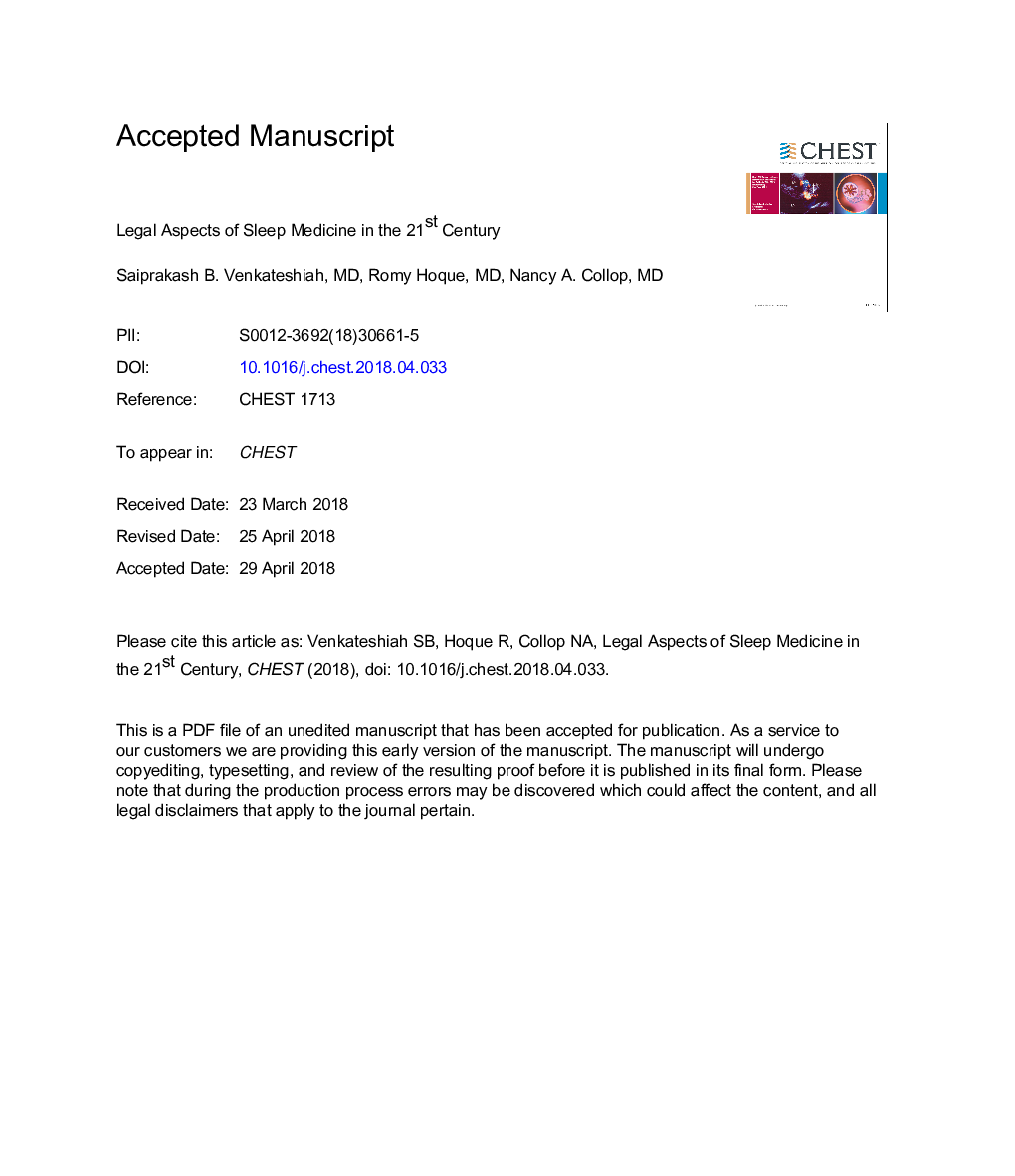| Article ID | Journal | Published Year | Pages | File Type |
|---|---|---|---|---|
| 8962904 | Chest | 2018 | 25 Pages |
Abstract
Multiple manifestations of sleep disorders may interact with the law, making it important to increase awareness of such interactions among clinicians. Patients with excessive sleepiness may have civil (and in some states criminal) liability if they fall asleep while driving and cause a motor vehicle accident. Employers may be held vicariously liable because of the actions of sleepy employees. Hence, awareness of causes of excessive sleepiness, such as sleep deprivation and OSA, is increasing among trucking, railroad, and other safety-sensitive occupations. Interestingly, litigation related to perioperative complications because of OSA is more frequent than nonoperative issues such as a failure to diagnose OSA. Parasomnia-associated sleep-related violence represents a challenge to clinicians because they may be asked to consider parasomnia as a possible contributing, mitigating, or exculpatory factor in criminal proceedings. Clinicians should also familiarize themselves with the legal and regulatory aspects of running an independent sleep laboratory. Sleep telemedicine practice using 21st century technology has opened novel and unique challenges to existing laws. In this review, we cover the most common interactions between sleep disorders and the law, including the challenges of excessive sleepiness and driving, other legal issues involving patients with OSA, and the liabilities associated with parasomnia disorder. We will also cover some practical legal aspects involving independent sleep laboratories and the field of sleep telemedicine.
Keywords
Related Topics
Health Sciences
Medicine and Dentistry
Cardiology and Cardiovascular Medicine
Authors
Saiprakash B. MD, Romy MD, Nancy MD,
